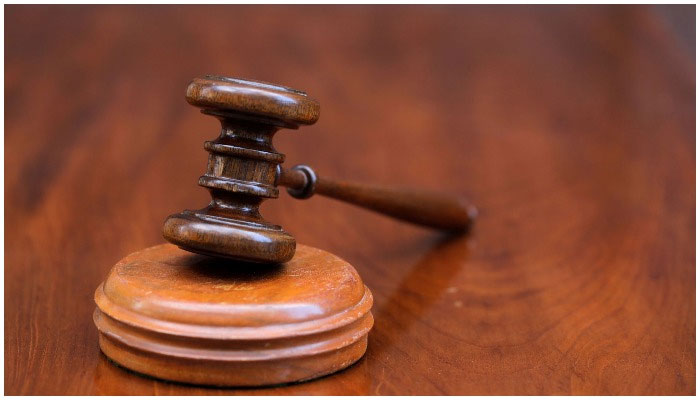Decriminalising defamation
The Supreme Court of South Africa in Government of the Republic of South Africa vs the Sunday Times wrote: "The role of the press is in the front line of the battle to maintain democracy. It is the function of the press to ferret our corruption, dishonesty and graft wherever it may occur and to expose the perpetrators.
The press must reveal dishonest mal-and inept administration. It must also contribute to the exchange of ideas already alluded to. It must advance communication between the governed and those who govern. The press must act as the watchdog of the governed."
Decriminalisation of defamation is now the international best practice. International organisations that recommend decriminalisation of defamation include: the European Court of Human Rights, the United Nations Rapporteurs, the Inter-American Commission on Human Rights, the Organisation of American States, the Council of Europe, the Organisation for Security and Cooperation in Europe and the Inter-American Court of Human Rights.
Sri Lanka has decriminalised defamation. Maldives has decriminalised defamation. The United Kingdom has decriminalised defamation. Argentina has eliminated libel and slander laws. The United States, France, New Zealand, Mexico, Bulgaria, Romania, Côte d'Ivoire, Central African Republic, Croatia, Estonia, Georgia, Moldova, Ukraine, Bosnia and Herzegovina, Albania, Serbia, Ghana, Togo, Uganda, Peru, Chile, Grenada, Brazil, Uruguay, Armenia, Montenegro, Kyrgyzstan, Tajikistan, Cyprus, Costa Rica, El Salvador, Jamaica and Ireland have all decriminalised defamation. Red alert: Pakistan has criminalised defamation.
In 2016, the Supreme Court of India commented that "a person cannot be prosecuted for defamation for calling a government corrupt or unfit... It amounts to curbing free speech. There has to be tolerance of criticism... The defamation law can't be used as a political counter-weapon."
According to the Inter-American Commission on Human Rights: "Criminal defamation laws threaten the vitality of freedom of expression. The threat of prosecution chills free speech, and governments too often abuse such laws to silence criticism of public officials and the state. This stifles and restricts public debate and diminishes government accountability."
In the UK, an amendment to the Coroners and Justice Act "decriminalised defamation, sedition and seditious libel, defamatory libel and obscene libel." In Pakistan, we are now converting 'critics' into 'criminals'. Yes, there's a correlation between free speech and the economy. Yes, there are severe long-term costs of curbing dissent. In Pakistan, we are now criminalising journalistic errors. In Pakistan, we are now using criminal defamation to limit criticism. In Pakistan, we are now using criminal defamation as a tool of indirect censorship. Yes, there's a "crucial nexus between freedom of expression and democracy." In Pakistan, we are now using 'wild accusations' to justify 'random detentions'.
The European Court, applying the proportionality analysis to defamation cases, has struck down prison sentences for defamation. Under the International Covenant on Civil and Political Rights (ICCPR), "states should impose criminal sanctions for defamation only in the most serious cases and that prison sentences should never be imposed." Remember, the UN Human Rights Committee monitors compliance with the treaty's provisions (Pakistan has ratified the Covenant). Remember, Pakistan has obligations under international law.
Pakistan needs to move in the direction that the world is moving in-towards decriminalising defamation and treat defamation as a civil wrong.
-
 What You Need To Know About Ischemic Stroke
What You Need To Know About Ischemic Stroke -
 Shocking Reason Behind Type 2 Diabetes Revealed By Scientists
Shocking Reason Behind Type 2 Diabetes Revealed By Scientists -
 SpaceX Cleared For NASA Crew-12 Launch After Falcon 9 Review
SpaceX Cleared For NASA Crew-12 Launch After Falcon 9 Review -
 Meghan Markle Gives Old Hollywood Vibes In New Photos At Glitzy Event
Meghan Markle Gives Old Hollywood Vibes In New Photos At Glitzy Event -
 Simple 'finger Test' Unveils Lung Cancer Diagnosis
Simple 'finger Test' Unveils Lung Cancer Diagnosis -
 Groundbreaking Treatment For Sepsis Emerges In New Study
Groundbreaking Treatment For Sepsis Emerges In New Study -
 Roblox Blocked In Egypt Sparks Debate Over Child Safety And Digital Access
Roblox Blocked In Egypt Sparks Debate Over Child Safety And Digital Access -
 Savannah Guthrie Addresses Ransom Demands Made By Her Mother Nancy's Kidnappers
Savannah Guthrie Addresses Ransom Demands Made By Her Mother Nancy's Kidnappers -
 OpenAI Reportedly Working On AI-powered Earbuds As First Hardware Product
OpenAI Reportedly Working On AI-powered Earbuds As First Hardware Product -
 Andrew, Sarah Ferguson Refuse King Charles Request: 'Raising Eyebrows Inside Palace'
Andrew, Sarah Ferguson Refuse King Charles Request: 'Raising Eyebrows Inside Palace' -
 Adam Sandler Reveals How Tom Cruise Introduced Him To Paul Thomas Anderson
Adam Sandler Reveals How Tom Cruise Introduced Him To Paul Thomas Anderson -
 Washington Post CEO William Lewis Resigns After Sweeping Layoffs
Washington Post CEO William Lewis Resigns After Sweeping Layoffs -
 North Korea To Hold 9th Workers’ Party Congress In Late February
North Korea To Hold 9th Workers’ Party Congress In Late February -
 All You Need To Know Guide To Rosacea
All You Need To Know Guide To Rosacea -
 Princess Diana's Brother 'handed Over' Althorp House To Marion And Her Family
Princess Diana's Brother 'handed Over' Althorp House To Marion And Her Family -
 Trump Mobile T1 Phone Resurfaces With New Specs, Higher Price
Trump Mobile T1 Phone Resurfaces With New Specs, Higher Price




